Movie Review – Dunkirk (2017)
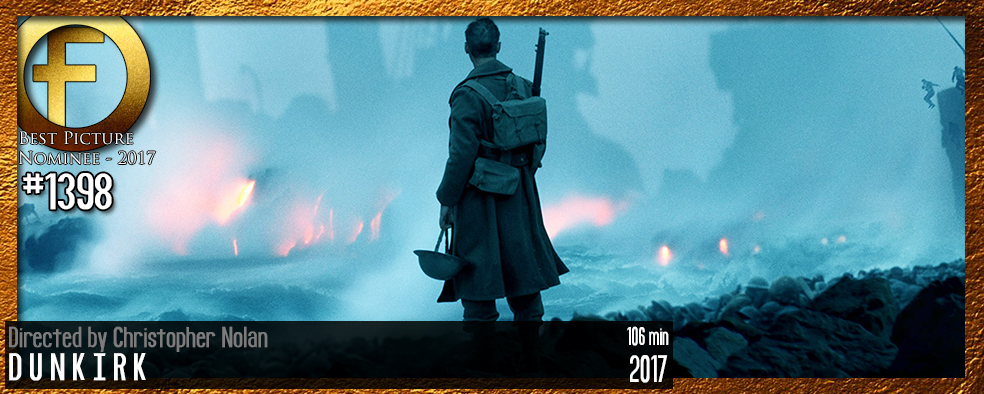
Principal Cast : Fionn Whitehead, Tom Glyn-Carney, Jack Lowden, Harry Styles, Aneurin Barnard, James D’Arcy, Barry Keoghan, Kenneth Branagh, Cillian Murphy, Mark Rylance, Ton Hardy.
Synopsis: Allied soldiers from Belgium, the British Empire and France are surrounded by the German army and evacuated during a fierce battle in World War II.
******
Ambitious, enormous, loud, incredibly tense: there’s every chance Christopher Nolan’s Dunkirk will play a significant role in every awards show to come for the films of 2017. Make no mistake: Dunkirk is a terrific film in almost every respect, boasting the hottest A-list talent behind the screen and several A-listers in front of it – notably Oscar winner Mark Rylance (The BFG and Bridge Of Spies) and Tom Hardy (Mad Max: Fury Road) and Nolan’s canny choice to depict one of the most miraculous wartime feats of valour will lend itself favourably to Academy members searching for a film with meaning and resonance. Eschewing character for singularly gripping, white-knuckle survival terror, Nolan’s ventures along a non-linear narrative path, a trio of interwoven plots coalescing into a magnificent wartime whole that is as gloriously human as it is engagingly beautiful.
It’s 1940, and German forces are advancing through France during the early stages of the second world war. On the beaches of Dunkirk, directly across the channel from England, the British army is in retreat against the German tanks, scattered along the beachhead desperate for rescue. Ships are sent but are quickly sunk by Nazi war planes and U-Boats, leaving over three hundred thousand troops stranded with almost no hope of rescue. Army private Tommy (Fionn Whitehead) attempts to “assist” a wounded soldier onto a rescue ship but his escape is thwarted when the boat is sunk at the dock. Navy commander Bolton (Kenneth Branagh) stands at the end of a long pier, willing his soldiers to survive even as they chances of escape slide further away – as his second continues to update him as to the Nazi advance. Back in Britain, local sailor Mr Dawson (Mark Rylance) and his two sons, Peter (Tom Glyn-Carney) and George (Barry Keoghan), depart for Dunkirk as part of a military operation to send civilian vessels to collect as many of the stranded soldiers as they are able. Along the way, they pick up a surviving seaman (Nolan regular Cillian Murphy), who is desperate to get as far away from battle as he can. In the air, pilot Farrier (Tom Hardy), and his squadron fly the channel to take down enemy planes, gradually running low on fuel and time to prevent more casualties at the hands of German bombers. [You can read more about this incredible story at the Wiki page.]
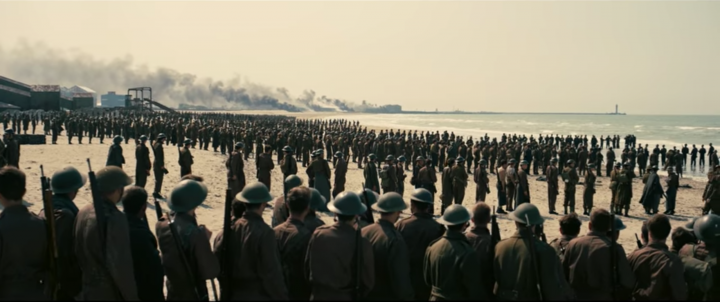
Dunkirk is a film of pleasing difference to modern cinematic expectations. As a war film, depicting some particularly brutal and devastating moments of human loss, Christopher Nolan has avoided the blood-and-guts gore-porn of his contemporaries and struck a lone figure of restraint with his epic story of salvation. The focus of this film isn’t so much the saturated horror of war told through a prism of depravity, but rather an intense, white-knuckle ride through one of history’s most astonishing feats of human survival and hope. Based on actual events, although compressed both in time and with character, Nolan has rubbed against the grain with a tellingly prescient, gripping story of simple survival: the characters are largely nameless, the faces hardly well-known (with the exception of pop superstar Harry Styles, whose performance isn’t immediately at the forefront of the film, to Nolan’s credit) and the rat-a-tat pacing and constant battle against mountainous odds is inherently dramatic regardless of your opinion on war.
“The empathy for the characters has nothing to do with their story. I did not want to go through the dialogue, tell the story of my characters… The problem is not who they are, who they pretend to be or where they come from. The only question I was interested in was: Will they get out of it? Will they be killed by the next bomb while trying to join the mole? Or will they be crushed by a boat while crossing?” – Christopher Nolan, on the main purpose of the film.
Written by Nolan, the film’s three-pronged narrative allows him to cover the majority of the three military theatres in Dunkirk’s amazing chronology. Using Fionn Whitehead’s disenchanted solider to represent the Army, Kenneth Branagh’s stiff-upper-lipped commander for the hapless – helpless – Navy, and Tom Hardy’s squint-eyed pilot for the Air Force, Dunkirk’s homage to British military competence is eclectically ambivalent; Nolan makes no statement about war through them, nor does he politicise or condemn those who made decisions affecting thousands, but rather he establishes tone and the stakes, and lets rip with all his considerable cinematic might to deliver it. And boy, does Dunkirk deliver. The film often replays the same moment twice or thrice, from differing perspectives, allowing for the differences in time (the solders were stuck on Dunkirk’s beach for about 10 days, whilst the narrative involving Hardy’s pilot occurs over little more than an hour of “real” time), and where one might think this a confusing or potentially confusing method of storytelling, Nolan absolutely nails it.
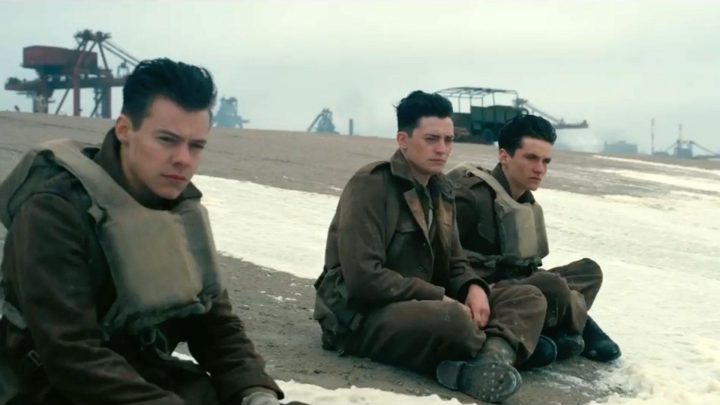
There are several things to note about Dunkirk that make this such an experiential film. Firstly, the thunderous sound design; a raucous barrage of concussive magnitude many modern cinemas will be unable to handle. Nolan is known for his aggressive sound design and Dunkirk never shirks in this area: as Hardy’s Spitfire howls through the sound-field or the German Messerschmitt’s drop their lethal cargo onto both boat and beach, Dunkirk is intent on placing the viewer directly into harms way. There’s no escaping it, really, as the very depths of your soul are pummelled by Nolan’s intense sound mixing. Gunfire cracks with an immediacy that’s instantly terrifying, whilst aerial dogfights and the associated howls and screams of engines and shredding gunfire are piercing. Dialogue, a key element to modern film-making, is occasionally muffled and indistinct, a complaint levelled against Interstellar too so make of that what you will. You’ll feel this film coming.
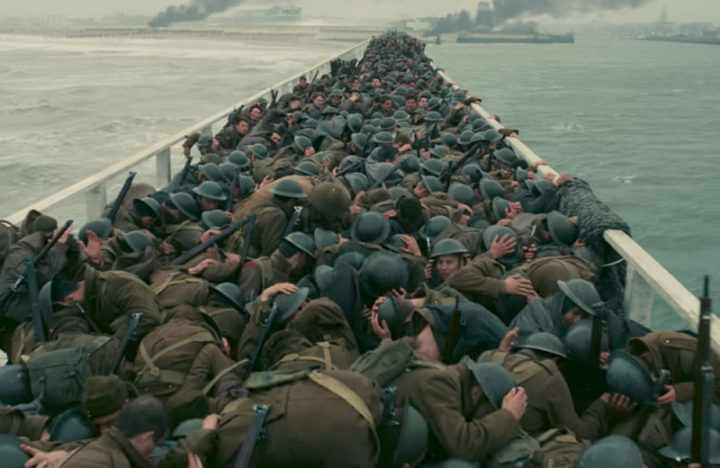
Secondly, Hans Zimmer’s rhythmic, constantly baiting musical score, which is a match for the sonic surround blasting in every way. Zimmer’s score is less thematic than I was expecting but more evocative as an accompaniment to on-screen action. The multiple moments of tension are wrung out with screeching strings or rapidly accelerating metronome ticking, unconsciously suffocating the audience’s ability to think of escape as the tension, the terror mounts. At times bombastic, at times incredibly taut, and when required containing magnificent patriotism, Zimmer’s score is as buffeting as the shockwaves of the film’s sound design. Dunkirk is a film to be lived through, not simply watched. You cannot view it passively, as a distant observer, but rather from within its midst as if you were a wartime correspondent in the heat of the battle.
In keeping with this feeling of omnipresent terror, Nolan’s camera inhabits every square inch of the story, from the nimbus clouds above the waters of the English Channel, to the wind-blasted beaches of Dunkirk, to the oil-slicked belly of the boats trying to recuse marooned personnel. The cockpit of Tom Hardy’s spitfire is cramped and terrifying, but Nolan jams us in there between Hardy and the gunfire, while the waves of the Channel lap against Mark Rylance’s boat and send us teetering around his tiny craft as it hurtles into harms way. Cinematographer Hoyte Van Hoytema (a man so nice they named him twice) smothers the gorgeous scenery of the locations with a blueish melancholy tone, the cold grey oppressiveness of war in visual form. As with his work on Nolan’s Interstellar, Hoytema films with a crisp, almost antiseptically cool style, as if trying to remain distant from the action while simultaneously being within it. It’s a curious mix. The camera often lets the action slide off frame, just out of sight beyond the corners of the screen as planes, boats and combat overwhelm the senses as the climax of the film approaches. It’s a purposefully frustrating method of keeping the audience unsettled, never quite knowing where the next attack or explosion will come from.
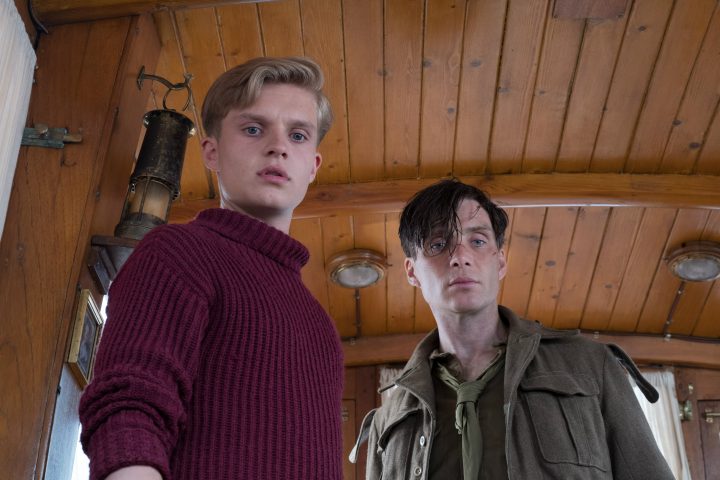
As a creative choice, Nolan’s refusal to give us a specific character to latch on to emotionally is one I struggled with. I typically like to follow a single character and understand their arc, to appreciate their growth as a person between the film’s commencement and its conclusion – assuming they survive in the first place. The large ensemble cast and Nolan’s detached style works to inhibit this kind of personal attachment, to the point where it became numbing as to who lived or died whilst we followed them. Mark Rylance’s heroic father figure was about as close as I could come to an attachment of any kind, and several lines of dialogue hinted as a backstory I’d have liked to know more about; alas, it wasn’t to be. Fionn Whitehead’s ubiquitous solder was left largely motivated by simple human survival, although we knew too little of his past to make his plight more impactful. Characters do suffer, but their suffering for honour, empathy or even basic humanity is largely superficial, designed to approximate emotive content without delving too deeply. This absence of contextual human interaction beyond the simplistic is an issue I think will invariably differ from person to person, and it’s certainly a small problem I had with the film than a ruinous one for everybody, but it is worth mentioning.
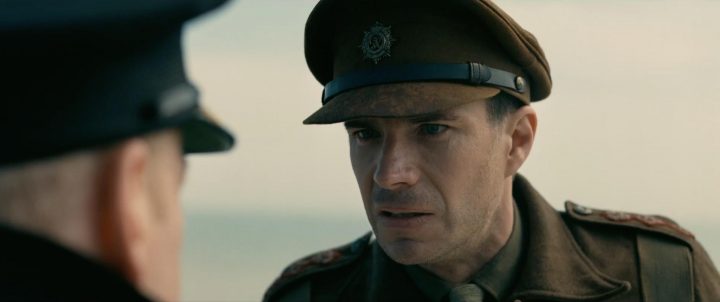
Dunkirk is a film that deserves to be seen as large and loud as you possibly can. It’s a devastatingly great film – it’s certainly Nolan’s most accomplished film at a technical level, although I still think The Dark Knight is a better film overall – and will rightfully find award season glory for multiple aspects of its production. Only time will be the judge on whether it deserves a “greatest of all time” label (in my opinion, it’s not a patch on Private Ryan or Apocalypse Now, but each to their own) but as a technical and humanistic achievement in depicting war on film, Dunkirk will savage many opponents before it’s done for the day. A must-see, Dunkirk is a towering achievement that deserves all the accolades, attention and success coming its way.





Hopefully seeing this next week! Good to see the glowing review Rodney!
It’s a cracker movie mate, enjoy it when you see it!